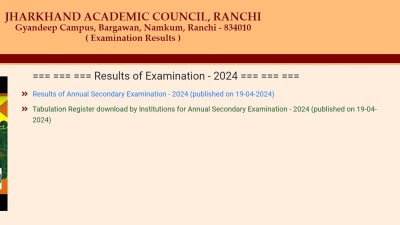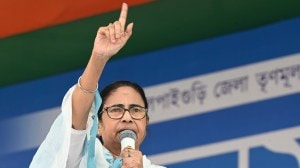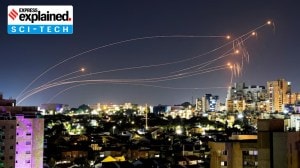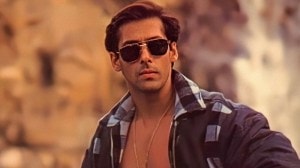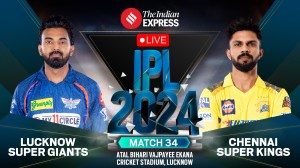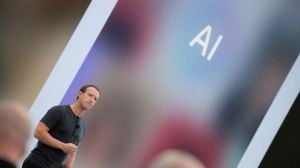- India
- International
‘We won’t align with BJP, not at all. At this point, it is looking like the main opposition’
In this Idea Exchange PDP chief Mehbooba Mufti explains why she is “disappointed” with Modi government.
 PDP chief Mehbooba Mufti explains why she is “disappointed” with Modi government and why she thinks BJP is playing a dangerous electoral game.
PDP chief Mehbooba Mufti explains why she is “disappointed” with Modi government and why she thinks BJP is playing a dangerous electoral game.
In this Idea Exchange moderated by Senior Editor (Legal Affairs) Maneesh Chhibber, PDP chief Mehbooba Mufti explains why she is
“disappointed” with Modi government and why she thinks BJP is playing a dangerous, costly electoral game
Maneesh Chhibber: What do you think will be the factors in the upcoming elections in Kashmir?
First, the political situation that has precipitated in the last month and two, governance. Everywhere, people want good governance, good infrastructure, basic amenities, employment, etc. But Kashmir also has external (Pakistan) and internal problems.
Coomi Kapoor: Last time you were here, you were very positive about the NDA. Are you still positive about it, given their recent remarks about Article 370?
I’m actually very disappointed with it. And I am not the only one, as recent results from Bihar and other places have shown. People were expecting something totally different, because when they were listening to Narendra Modi’s speeches all over the country, more so in Kashmir, he used to talk about (Atal Bihari) Vajpayee’s doctrine, following his footsteps, etc. But now, as far as Kashmir is concerned, these (foreign secretary) talks have been called off on a very whimsical reason: Hurriyat. As if it has happened for the first time. In Vajpayee’s time, when General (Pervez) Musharraf came, he met everyone, including the Hurriyat. They were also allowed to go to Pakistan and meet the leadership there and then come back and have two rounds of talks. So to call off these talks, and when we have this situation at the border which is escalating daily, I feel that whatever investment was made — Vajpayee’s taking that Lahore bus in 1999, and the UPA-I’s efforts to address the Kashmir problem both internally as well as externally… I don’t think UPA-II did anything to take it forward — in the three months that this government has been here, I think they’ve brought us back to square one. So I am very disappointed.
I think it was before 2002 that we had the same kind of firing on the border, this same kind of attitude that if anyone in Kashmir talks about talks, he’s anti-national. Just the mention of ceasefire would make people say you’re anti-national. So I feel everything is going back, which is not what we expected.
Rakesh Sinha: Are you open to alliances in a post-election scenario?

Not at all with the BJP, let me make that very clear. First, we need to understand that in a democratic state, you need one government and one opposition. At this point of time, the BJP is coming out as the main opposition and the PDP has about 41 seats, so it seems, Insha Allah, we’ll be forming the government and the BJP will form the opposition. They have their own agenda, we have our own. One of the reasons that militancy has increased in Kashmir is because the Congress and National Conference got together. Earlier, they were on different paths, and when they ended up coming together, people got really angry. Both the parties got discredited. I’m talking about 1987.
The Congress was the main opposition, the NC was the ruling party. If you recall, the NC had 60 seats in 1996 and because Omar (Abdullah) wanted to be a minister, they joined hands with the BJP. And from 60 seats, they went down to 28 in 2002 and they did everything bad at that time. The NDA wanted implementation of POTA and even Farooq (Abdullah) sahab used to do Pakistan-bashing and all that, but in the end, what did people gain out of it? Both the parties got discredited — the BJP in Jammu and the NC in Kashmir.
So we would like to keep the faith with the people and with our agenda and we wouldn’t want to join hands with a party which, specially after the formation of this new government, is doing exactly what people were apprehensive about. We can’t go with the BJP.
P VAIDYANATHAN Iyer: With this new wave of Islamic radicalism and the actions of the ISIS, do you think there might be an impact on POK and J&K?
J&K, despite being a Muslim-majority state, chose to be part of a secular, democratic India. More than any IS or ISIS, my bigger concern is this “we are all Hindus” thing that is happening, because Kashmiris have never really been fundamentalists. They are emancipated and despite being a Muslim-majority state, Hindus, Sikhs and Muslims all live together. Yes, certain things have happened, there’s been an exodus, not just of Kashmiri Pandits but also of Muslims. I am concerned about the IS because we have a very unstable Pakistan and an insecure Kashmir at this time. Of late, we have seen educated boys pick up guns and resort to violence.
I think we’ve lost an opportunity, we’ve lost the last six years. Since 2003, certain confidence-building measures were taken, like the opening of roads, starting trade and revoking POTA. But unfortunately, these have come to a standstill. The people of Kashmir are disillusioned that nothing is going forward. And that’s what has pushed some young guys, even those who are very educated, towards this, even before I had heard of the ISIS. In the last one-and-a-half years, about a dozen young men, all MBAs or engineers, have died after becoming involved in all this. And that’s what worries me. If the BJP and RSS adopt this posture, it will become a match between the BJP, RSS and the separatists in Kashmir. Both are adopting aggressive postures and trying to outdo each other. Democratic, moderate forces, which includes us, seem totally irrelevant and that’s a very dangerous thing. The BJP is in election mode and while we don’t grudge their electoral process, they shouldn’t do it at the cost of the political process. Which is what seems to be happening, as everything they are doing seems to be focused on winning elections, whether in J&K or Maharashtra.
Maneesh Chhibber: In the run-up to the Lok Sabha elections, we saw communal polarisation in Uttar Pradesh. Do you fear the same in Kashmir?
It seems the BJP is trying its best to do that. Like in Kausar Nag. Kashmiri Pandits who want to go there have been going for years and they don’t need to seek permission. To us, nag doesn’t mean snake, it means chashm (spring). The Kashmiris don’t even eat the fish of the spring; they consider it sacred. But still, there was an attempt to rake up things. I heard that again some meeting is being organised by some organisation, some samiti. So the BJP is trying to undo all the good things that have been done over the last so many years by both Vajpayee and the UPA-I. I mean just imagine General Musharraf saying UN resolutions are not important, how forward we had moved. But now it seems we’re lost. Everyone’s busy labelling any Kashmiri who opens his mouth as anti-national.
Raghvendra Rao: Has calling off the foreign-secretary level talks damaged the Indo-Pak peace process?
It is definitely a setback. As your colleague rightly said about the ISIS, we are being surrounded by so many bad things which are happening at the same time. Unstable Pakistan, unstable Kashmir, the breakdown of talks, calling off of the talks. The NDA has made the Hurriyat more relevant both in Kashmir and in Pakistan. And it’s not helping us.
Muzamil Jaleel: In your poll campaigns earlier, you have called militants brothers and your slogan was goli se nahi boli se. You also promised self-rule. Nothing of that seems to be happening now and you also seem to be disappointed with Delhi. Same thing happened to the NC, whose autonomy report was dumped even as a two-third majority in the Assembly passed it. Why would people vote for a mainstream party then?
I would not compare the PDP, NC and Congress. We had 16 MLAs when Mufti (Mohammad Sayeed) sahab became CM, and had no alliance with the NDA. The NC had an alliance for six years. But their resolution was thrown in the dustbin and they did nothing. When we came to power, we made even Vajpayee say that ‘healing touch policy’ was the only policy. And in Srinagar, Vajpayee announced ceasefire with Pakistan. The Muzaffarabad road was opened too. I am sure there were many times when the UPA came to the rescue of the present CM.
Muzamil Jaleel: There is talk of massive polarisation happening in Jammu and that it will have its impact in Kashmir. There’s also talk that a poll boycott might help the BJP. The What are your apprehensions about the way things are shaping up?
Unfortunately, in the past too, talks had come to a standstill. It happened after Kargil, after the attack on Parliament. So at this point of time, we are apprehensive, not only about a boycott enforced by the Hurriyat and facilitated by the NC, but also about the BJP, because it seems the party is counting on getting some seats if the boycott is enforced.
In the recent parliamentary elections, the voting percentage was quite low. Since this is going to be the first Assembly elections in J&K during their tenure, it should be important for them that there is a good voter turnout. You don’t have to force people to come out, but at least you have to ensure a sense of security. I hope that the BJP and Hurriyat are not on the same page as far as this election is concerned.
Coomi Kapoor: If the PDP were to get a majority, who would be the chief minister, you or your father?
Insha Allah, Mufti sahab.
Coomi Kapoor: Why not you? You’ve been doing most of the state work.
At a time when we have so much not going right in our state, I think a person like Mufti sahab, who has the experience, acumen, and integrity, will be able to get things done for the benefit of the people. My father was not coronated like Farooq Abdullah. He had to work very hard. He has done a lot for the land and he took to mainstream politics at a time when it was seen as anti-Muslim, when there used to be social boycott, when Sheikh Abdullah was propagating for Pakistan, among other things. So my father worked very hard, he didn’t have a godfather. And even when I came to politics, I fought elections at the peak of militancy. Farooq sahab was in London, he was a doctor. Sheikh sahab called him and put a crown on his head and told him he has to be the chief minister. Omar sahab was working somewhere in Delhi, Farooq sahab called him and said, come here, fight the elections and be a minister in the NDA. Compared to this kind of coronation, my father is not going to come and put a crown on my head and declare me the chief minister. People talk about Modiji, and how he has struggled since his chaiwallah days. Many people, including my father, have risen from the grassroots.
Rajgopal Singh*: You said that you and the BJP have different agendas and that you cannot go together. But during the Lok Sabha elections, your tone was softer. In the past, you have even aligned with the NDA government. Why this change of attitude?
It’s because of the performance of the NDA government and whatever Modi has been saying. He came to Jammu and Kashmir twice, and he said that I’m going to follow the footsteps of Vajpayee. I’m going to do insaaniyat (humanity), jamhooriyat (democracy) and Kashmiriyat. But what we’re seeing today does not match his words. That’s why the disappointment. People are now saying that Modi was preaching during his speeches. We’re not just a corporate world. You can’t be good to just the corporate world, and the rest can be dealt with upside-down. And no, I’m not changing my attitude. I said what I saw at that point of time. Today, I’m saying I’m disappointed because my expectations were different. The way things have been happening for the last 100 days… it is not as if it is all development, development, development.
Maneesh Chhibber: What are you going to tell the voters? What has been the biggest problem with the Omar government? What are the things he should have done and did not do? Also, please tell us some of the good things he did.
If the government, after losing the parliamentary elections, starts accepting that this or that was wrong and now we’re going to do it right, you can imagine what they have been doing for the last five-and-a-half years. They have reversed every decision they have taken. Where is the money going to come from for such reversal? You have taken money from the Mata Vaishno Devi Trust to give out salaries, you don’t have money to give for provident fund, for someone’s daughter’s marriage or hospitalisation, there are backdoor entries as far as daily wagers are concerned, etc. I keep telling people that a stone will have the highest value, because foundation stones are the in thing. I think they themselves have acknowledged everything they have done wrong. They are trying to rectify it, but without any provisions to do so.
Muzamil Jaleel: There is a lot of talk about radicalisation in Kashmir. You speak to people. Do you think there is radicalisation on the ground? Also, you talked about educated people becoming militants. What does that tell?
There is this general thing at the international level, of Islam and Islam vs all. So when you go on Facebook, you see a different picture. When I meet people, I don’t really meet that category of people. I meet common people, the youngsters. I haven’t seen that in them. But when I discuss with people, and they go on Facebook, they write things on Facebook that you can say is dangerous.
Muzamil Jaleel: Most of these boys are from your constituency?
From south Kashmir. Their families have said that when boys were killed in stone-pelting in 2010, these guys came on the road and some of their friends were killed unnecessarily. They were then taken and beaten up. Many of them have also taken up guns as a reaction to the atrocities committed on them. So it’s also a reaction to such things, which is also unfortunate. During the 2008 (Assembly elections), we saw such huge participation of people. After that, we failed. I think the mainstream parties, the state government and the government in Delhi failed to meet the expectations with which the people had voted in 2008.
Muzamil Jaleel: What has been your experience in Parliament? How has it been different?
There are more than 350 parliamentarians and most owe their success to Modi. They still have a lot to learn. The Congress MPs were experienced and educated. Now there are new people. There are many who push a roti down your throat and are happy with themselves. Things like that. And I think it’s at a stage where they are almost like nursery children who need to learn a lot.
Raghvendra Rao: The Lok Sabha elections witnessed a poor turnout in J&K. Are you hopeful the numbers will improve this time and are you confident that elections will be free of rigging and malpractices?
The last parliamentary elections were very free and fair. Though there was a boycott, it was called by the Hurriyat and also facilitated by the ruling party. This time, the separatists will go for the boycott, more so after this snub from New Delhi. Again, that’s also one of the reasons why at this point of time New Delhi should have talked to Pakistan and told them, ‘See, we have our elections in the offing, please see to that’. You can extract certain things, and so can they. It is ‘give and take’, but they just snubbed everything. So now, separatists have more of a reason to establish their relevance and they will go for tough stunts and there’s going to be more boycott. We have seen in the last elections how the ruling party tried their best to facilitate boycott and maybe the NDA government will try to get a couple of seats through migrant votes… This lesser percentage of votes also takes away our legitimacy.
*EXIMS student Transcribed by Shantanu David, Pallavi Pundir, Suyash Gabriel and Nikita Puri
Apr 19: Latest News
- 01
- 02
- 03
- 04
- 05


